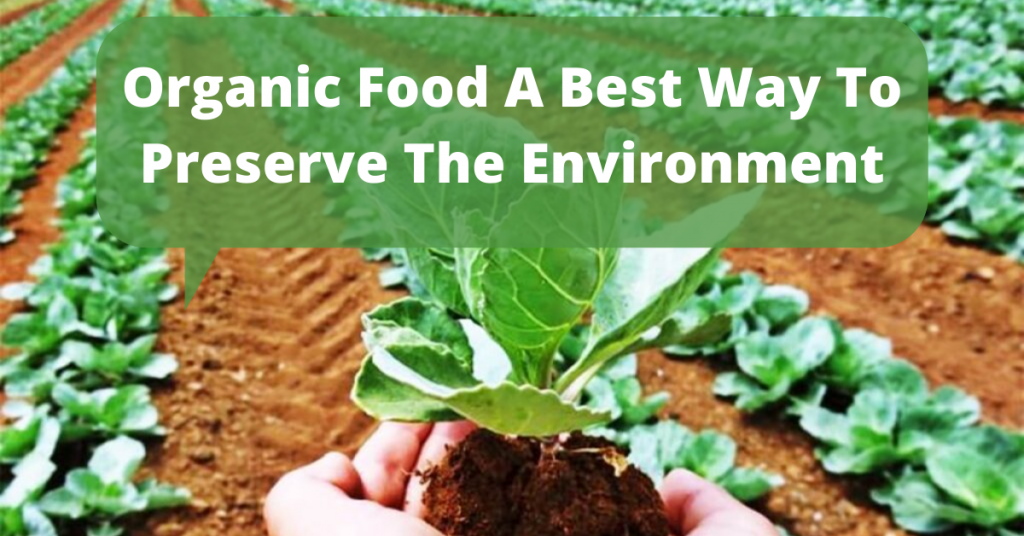Organic food is a great way to preserve the environment. It is grown without the use of synthetic pesticides and chemical fertilizers, which can harm the environment. It helps to reduce deforestation by using land that has been abandoned by conventional agriculture methods, such as large-scale industrial farms.
Organic farming as a solution to climate change.
Organic farming is one of the most sustainable agricultural practices that we have available to us today. It is a solution to climate change because it can reduce the number of greenhouse gases in the atmosphere. Organic farming uses natural methods and does not use chemicals or pesticides which can harm the environment.
The benefits of organic farming are that it can reduce the number of greenhouse gases in the atmosphere, it doesn’t use harmful chemicals or pesticides, and it is more environmentally friendly. There are many reasons why people should consider organic farming as a solution to climate change.
How to support sustainable agriculture by eating organic food?

The world is facing an agricultural crisis. The food system, which has been the backbone of our civilization for millennia, is in a precarious state and the problem of unsustainable agriculture is a pressing issue that needs to be addressed. The need for sustainable food production is growing due to the increased population and changing climate.
Sustainable agriculture can be achieved by eating organic food. Organic farming practices are environmentally friendly, provide healthy food for consumers, and support small-scale farmers.
Move small steps to support organic and sustainable farming by choosing organic pulses online that are healthy as well as cost-effective.
Organic farming is more than just a fresh idea for agriculture.
The benefits of organic farming are numerous: It reduces pollution, promotes biodiversity, and promotes sustainable agriculture. It’s also a more efficient way to produce food. It can lead to higher crop yields than conventional farming methods due to less stress on the soil.
Organic farming is more than just a fresh idea for agriculture. It has been around for decades and it has been around for centuries. Organic farming is not only about producing quality food but also about making the world a better place.
Organic farming is better for the environment in 6 ways.
Organic farming is the way of farming that relies on the use of natural resources and limits the use of artificial chemicals. It is also better for wildlife because they produce higher levels of biodiversity than conventional farms.
Here are 6 better ways why organic farming is better for the environment.
Organic agriculture reduces soil erosion, water pollution, and greenhouse gas emissions
Organic agriculture is more sustainable than conventional agriculture
Organic agriculture has a smaller carbon footprint than conventional agriculture
Organic farms are less vulnerable to climate change because they don’t rely on fossil fuels for fertilizers or pesticides
Organic farms are better for wildlife diversity because they don’t require large-scale monoculture crops
Organic food tastes better
How organic farming helps reduce carbon emissions by 18%

In recent years, organic farming has become an increasingly popular method of agriculture. Its popularity is due to many reasons including its environmental benefits, healthier products, and sustainability.
The organic farming method reduces carbon emissions by 18% because it does not use chemical fertilizers and pesticides which are the main cause of greenhouse gases. It’s a way of farming that does not use any synthetic inputs, such as fertilizers, pesticides, and growth regulators. It also does not use genetically modified organisms or ionizing radiation.
Soil quality in agriculture and environmental health.
Soil quality is the most important measure of environmental health. It is the foundation of all food production, and it is a key factor in determining how resilient our ecosystems are to climate change.
The health of the soil is determined by many factors, including organic matter content, soil structure and porosity, nutrient availability, pH balance, and microbial activity.
Organic matter content refers to the percentage of organic material in the soil that has been broken down by microorganisms into molecules that can be used by plants for growth.
Sustainable agriculture practices maintain or improve soil quality by increasing organic matter content through crop rotations and cover crops.
Cover crops are grown between cash crops to protect the soil from erosion and depletion while adding nutrients back into the ground.
Organic farming as a solution to global warming and climate change
Organic farming is an environmentally friendly practice that can help address these challenges. It is also a way to improve the quality of life for people living in rural communities, especially in developing countries.
Organic farming has many benefits, including:
– Reduced carbon emissions
– Higher quality food
– Better soil quality
– Reduced water usage
– Increased biodiversity

